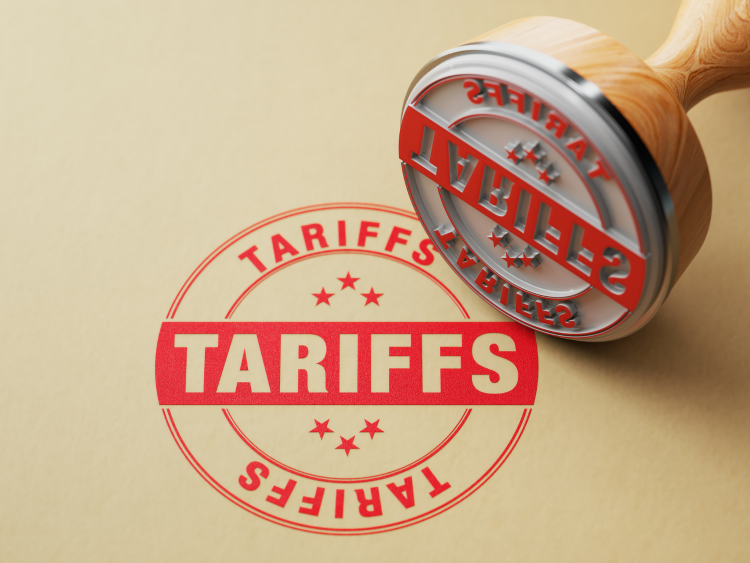Market Segment

January 28, 2025
Nucor CEO bullish on Trump tariffs and policy changes 'in the coming hours and days'
Written by Stephanie Ritenbaugh
Nucor executives called for more restrictive measures on illegally dumped and subsidized imports, saying they look forward to working with the Trump administration to support domestic steel.
Since November, Trump has threatened to apply 25% tariffs on all imports from Canada and Mexico. On Inauguration Day, he threatened to impose them as soon as Feb. 1.
“Unfairly traded imports continue to be a challenge for the domestic steel industry, with earnings negatively affected by rising global steel overcapacity and surges of unfairly traded imports, including corrosion resistant steel,” Leon Topalian, chair, president and CEO, said during the company’s fourth-quarter earnings call Tuesday.
“More needs to be done to ensure that these illegally dumped and subsidized imports do not continue to distort the American market,” he added.
The country’s largest steelmaker posted lower fourth-quarter earnings, down 63% to $287 million.
But the Charlotte, N.C.-based company says it is more optimistic about the year ahead. In recent years, there’s been more investment in US-based manufacturing, Topalian noted.
“We believe steel demand is poised for modest growth in the first half of the year and will gain more momentum as we get further into the second half,” Topalian continued. “Consumer confidence has been resilient. Inflation has moderated, and unemployment remains low. With respect to our primary markets, infrastructure and construction activity continues to be strong, as does institutional construction.”
Nucor execs expect growth to pick up in residential and commercial construction this year, especially if “we see looser lending conditions in a more supportive regulatory permitting environment under the new administration.”
Tariffs and trade
Topalian praised Section 232 measures for supporting domestic steel. But he said Section 232 has been weakened over time.
“Country exemptions and quota arrangements, including with Mexico and Canada and the EU, should be replaced with tariffs,” Topalian said. “And the Section 232 measures should be extended to downstream steel products such as fabricated structural steel.”
Topalian also urged lawmakers to pass the Leveling the Playing Field Act 2.0, which is aimed at unfair trade.
He also stressed that the easing of Section 232 tariffs at the northern and southern borders has been “grossly abused.”
“Roughly 40% of the imports coming into America today are from Canada and Mexico,” Topalian said. “That has got to come way down. I think in the coming hours and days, you’re going to see broad sweeping tariffs that are going to come back in to create a much more level playing field. You’re going to see those bad actors that are manipulating currency, that are distorting how they price goods … penalized.
Asked how restrictions on Mexico would affect Nucor’s operations there, Topalian said, “only about 5% or 6% of our product leaves the US, but most of that product that’s leaving is high value-added products. Most of what’s coming in from north and south of the border are commodity grades. Again, that’s got to stop.”
As for the substrate supplied Nucor’s joint venture in Mexico for galvanizing, Topalian said relative to the overall mix for the company, “that volume is very, very low,” and Nucor will find ways to continue to feed that unit.
Brandenburg mill
Among the executive orders issued by Trump since Jan. 20, some were directed at energy policy, including an order to suspend federal leasing to wind energy farms.
Recall that Nucor in 2023 introduced its heavy-gauge steel plate “Elcyon” that would be exclusively for the US offshore wind energy sector, and be manufactured its mill Brandenburg, Ky.
However, the company said that the Brandenburg mill was not meant to be used only for wind applications.
Brad Ford, executive vice president, plate and structural products, said he sees plate demand driven by other factors, including military spending and infrastructure spending, “which impacts plate for bridges, where we’re a very large player.”
“On imports, in addition to the 1.6 million tons of plate and heavy coil imported, nearly 2.2 million tons of fabricated structural products – which are pretty plate intensive – were also imported in ’24,” Ford added. “So any reduction in imports stands to be a very positive for the domestic market. So overall, we’re optimistic on plate demand, and it shows in our backlogs which are, which are multi-year highs.”







